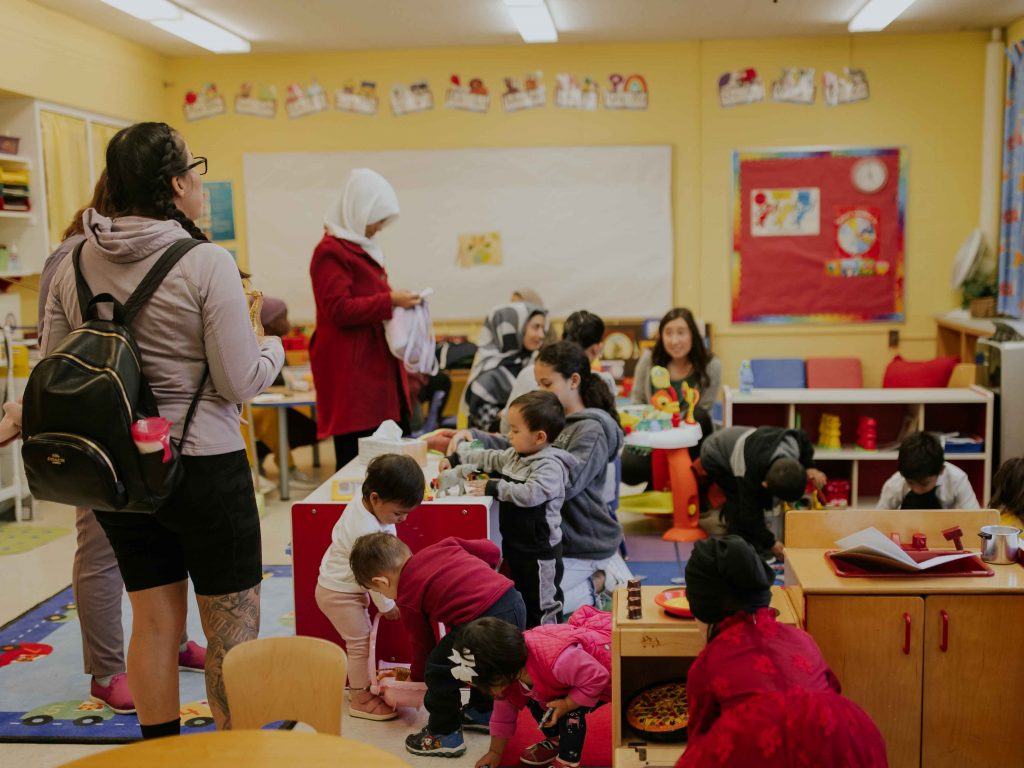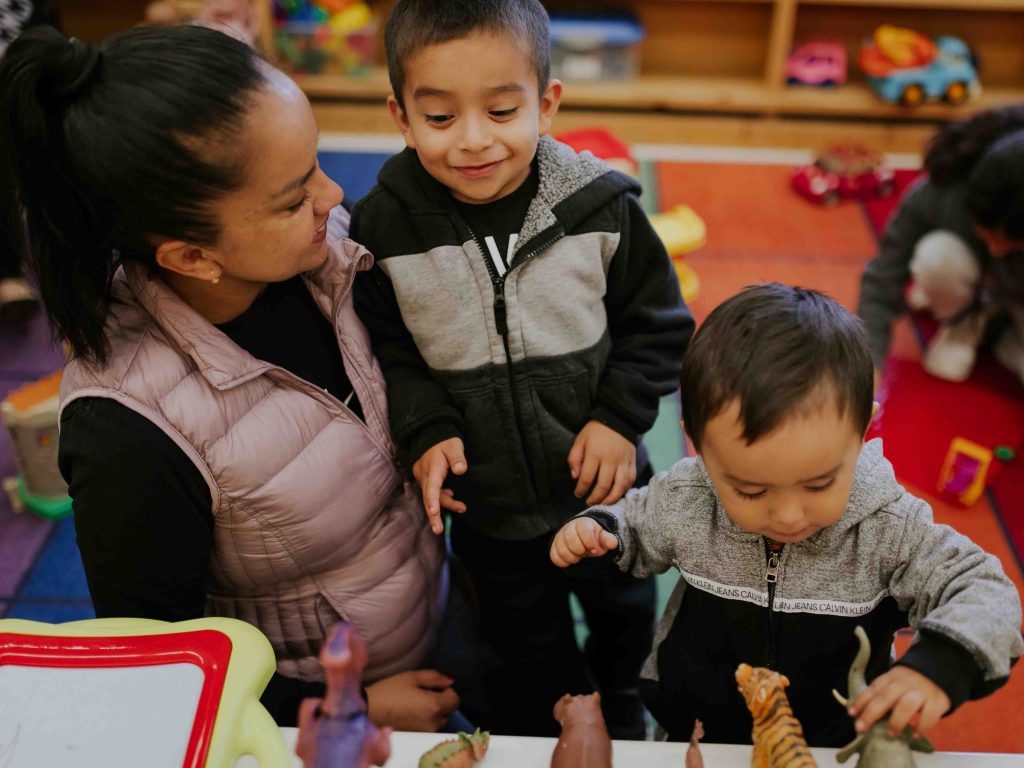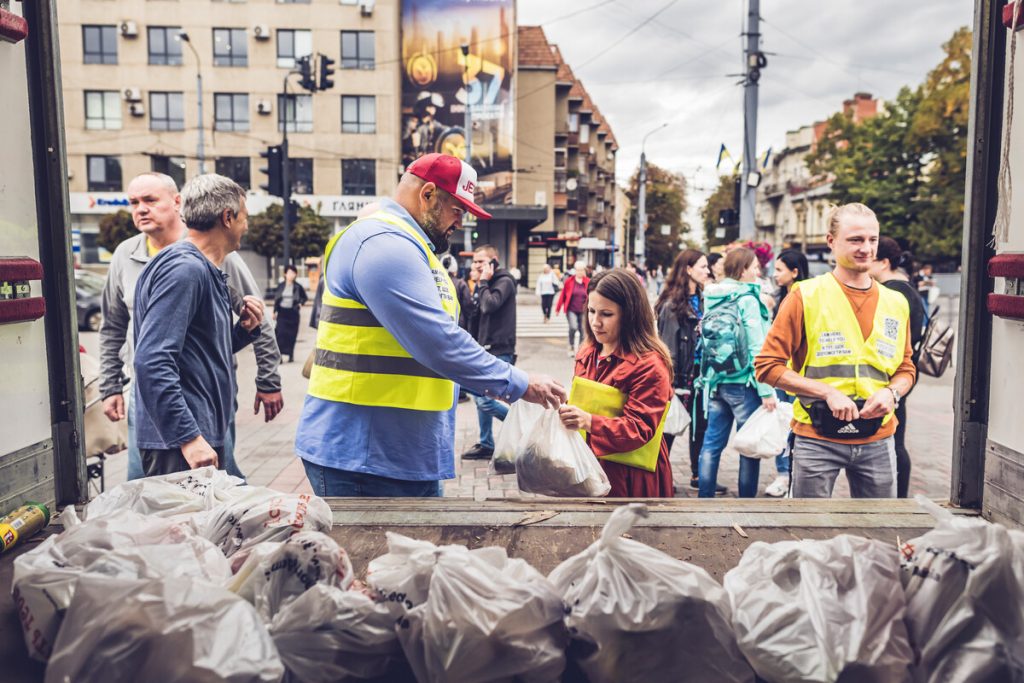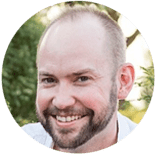Posts Tagged ‘Forward Together Blog’
Social Emotional Learning Equips Refugee Children and Their Families to Thrive
At World Relief, we are committed to advocating for refugees the opportunity to legally seek refuge in the United States. But our work doesn’t end there. We know that serving the refugee community requires caring for the whole person and their families.
As part of our bold vision to move Forward Together, we are determined to Go Deeper in our care for our refugee and other immigrant neighbors by addressing root causes of vulnerability and expanding our expertise in mental health.
Carrie Woodward, Foundations Partnerships Manager for World Relief Chicagoland, breaks down one of the trauma-informed mental health strategies: Social Emotional Learning.
At just four years old, Sam arrived in the United States with his family. Upon arrival, they were welcomed by World Relief Chicagoland. Like other refugees, the family arrived with hope and dreams for their future. the chance to rebuild in the United States did not erase the impact left by tragedy and trauma — even for a young child like Sam.
Refugee children carry their complex emotions and traumatic histories with them. This can make getting to a place of stability and happiness very challenging.
Even after coming to the U.S. Sam’s body and mind were marked by the trauma of his past, and he struggled to adjust. He had a lot of emotions that he did not understand or know how to express – so he lashed out in frustration. This left his parents feeling exhausted and overwhelmed, unsure of what to do. His mother told World Relief, “I feel helpless.”
The Challenges Refugee Children and Youth Face
For children, whose brains are still developing, the resettlement experience itself can be retraumatizing as they encounter language barriers, difficulty navigating community resources, lack of relational support and culture shock. Many refugees come from cultures where discussing mental health is taboo. This often means that busy parents like Sam’s who are processing their own trauma may not know how to support their children in recovering too.
Thankfully, with the help of community partners and volunteers, World Relief Chicagoland is equipping parents and children to grow and thrive through Social Emotional Learning (SEL).

How Social Emotional Learning Changes Children’s Lives
Refugee children have often experienced chronic stress for months or even years at a time. Their stories are often marked with violence, poverty, death of loved ones and displacement. These factors create complex thoughts and feelings that can feel scary to explore. Yet, processing these emotions is key to moving forward.
Social Emotional Learning helps children process by focusing on five areas that impact every aspect of life: self-awareness, self-management, responsible decision-making, relationship skills, and social awareness.
Each of these areas impacts a child’s self-confidence, relationships and ability to cope with daily stressors. Research has shown that when compared to students who did not participate in SEL, those who engaged with SEL activities:
- Had better grades
- Showed more skills for managing anxiety and depression
- Behaved better in a classroom setting
- Expressed better attitudes towards themselves and others
These impacts have long-term, positive effects. One analysis showed that students who participated in SEL programs gained social emotional skills that led to higher levels of well-being 18 years later.
What Does SEL Look Like At World Relief?
World Relief Chicagoland incorporates SEL into age-appropriate activities such as:
- 10-minute guided check-ins to identify and reflect on how their bodies are feeling
- Writing, drawing, or speaking “I am” statements. Saying affirmations like “I am good at basketball!” or “I am a great big sister!” can build self-confidence
- Using a chart of expressive emojis to help preschoolers identify and describe feelings
- Coloring pictures in response to prompts like “Show us your family” or “Show your home
SEL is part of a holistic approach to mental health that addresses the specific emotional needs of immigrant and refugee youth.
“Equipping refugee children with the tools and treatment they need to adapt and grow through trauma forges a pathway for them to embrace emotion and learn how to process it in a way that feels safe and organic to their developmental level,” said Katie Schnizlein, Early Childhood Program Coordinator at World Relief Chicagoland. “This breaks down the barriers of layered emotion and devastating trauma…as they grow into the rest of life.”

Preparing Children for Life
Ultimately, Katie says, “SEL ensures that children have services that cover mind, body and soul. Through SEL, children have the ability to grow in agency, autonomy, self-awareness, emotional regulation and the art of fitting into the world around them.”
In Sam’s case, SEL is part of the answer to the pain and the helplessness his parents felt.
Shortly after they arrived, Sam started attending a preschool and participating in World Relief’s Children & Youth program. He gained structure and relational support through his tutor and SEL activities, while his mother joined a World Relief-facilitated parenting group where she learned strategies to support her son socially and emotionally.
Thanks to this support system, now at five years old, Sam plays well with friends, is learning quickly in school and is working on naming and describing his emotions.
Read more about how we are going further and deeper to create lasting change and helping families thrive. Follow us on Facebook, Instagram or LinkedIn.

Carrie Woodward joined World Relief in 2021 in a role that engages foundation and business partners throughout the Chicago area. She studied community development and history at Covenant College. This education still informs her passion for asking questions and desire to find evidence-based ways to help communities flourish. Prior to coming to World Relief, Carrie worked for an international development organization and an academic research lab in Arizona. She is an avid reader, podcast-listener, and explorer of Chicago’s many unique neighborhoods. You can often find her playing pickleball or walking by Lake Michigan.
Go Far, Go Deep, Go Together in 2023
When I was a student at Fuller Theological Seminary, one of my professors, Bryant Myers, taught me that, “At the heart of poverty is broken relationships.”
Years later, that teaching shapes the way I see the world and the way I lead at World Relief.
Myers taught that before the fall, God established five foundational relationships that each person was created to live within: relationship with God, with self, with others, with community and with creation.
When these relationships function properly, they make way for human flourishing. But when one or more of them is broken, they precipitate all types of poverty in our lives and in the lives of others:
- Broken relationships with others can cause conflicts.
- Broken relationships with creation deprive us of God’s life-giving intention for the earth — that everyone has access to beauty and sustainable food, water and resources.
- Broken relationships with ourselves mar our ability to see the potential for change and transformation.
- And broken relationships with God keep us from experiencing grace and restoration.
Current Crises, Broken Relationships
Over the last year, we’ve talked at length about how COVID, conflict and climate change have converged to create the worst humanitarian crisis we’ve seen in decades.
In these crises, we see evidence of broken relationships. War displaces families from their homes. Communities suffer the effects of natural disasters. Women and girls face increased violence and discrimination. Our own brokenness often leaves us feeling hopeless and unable to engage, while pride and division prevent us from seeking collaborative solutions to these complex problems.
It’s clear that the old paradigms of providing humanitarian aid may not be enough. If we want to move forward, we must embrace a new vision. We must remember that a flourishing world is a connected world, and it takes all of us to create change that lasts.
At World Relief, we’ve long been committed to addressing our world’s problems holistically, making way for people and communities to restore relationships and flourish. For nearly 80 years, we’ve been moving with local churches and community leaders as they create lasting change, and many of you have moved right along with us.
As we settle into the new year, the problems facing us in 2022 have not been left behind. But thanks to the generosity of people like you, World Relief is poised and ready to meet the emerging needs of our world. Together, we will go far, go deep and go together in 2023, and I’m eager to tell you how.
Go Far: Ukraine, Chad and Ethiopia
Since February 2022, World Relief has partnered with local churches and Christian agencies in Ukraine, responding to the devastating war that continues to unfold. This summer, it became evident that a long-term presence in Ukraine was necessary to meet the immense needs that will extend for years to come.

World Relief has decades of experience working in current and post-conflict settings. Our team in Ukraine will build upon our technical experience to increase the capacity of local churches to meet the physical and spiritual needs of those impacted by the war.
In Chad, we’ve also found an opportunity to strengthen local churches to meet the needs of the most vulnerable.
The Southern portion of Chad is a Christian-majority region where population density is high and humanitarian actors are few. Existing local, faith-based NGOs are in need of capacity-building support from an international Christian NGO like World Relief to scale and expand impact.
We expect the Chad office to open in early 2023, and we will also be moving forward with plans to open an office in Ethiopia as well.
Go Deep: Mental Health Counseling and Disability Inclusion
While others might focus on one area of intervention or only provide immediate assistance, we remain committed to responding to needs holistically with proven solutions that last.
For refugees and other immigrants, this means addressing the profound physical and psychological trauma many endure when they are forced to leave their homes and rebuild their lives in an entirely new culture.
World Relief offices in Chicagoland and North Carolina have been providing mental health counseling to refugees for more than 20 years. In 2023, we’re expanding this service line to more offices to better meet the needs of those experiencing displacement.
Our commitment to thriving societies is also reflected in the depth of our disability-inclusive programming. People with disabilities represent some of the most marginalized, making up 20% of the world’s poorest in developing countries.
World Relief Malawi piloted disability-inclusive programming in 2019, reaching more than 400 people through church-led initiatives in the first two years. Since then, we have expanded disability-inclusive programming to church networks in Burundi and Rwanda, and are making plans to train churches in six more countries across the globe.
Go Together: Creating Lasting Change
At the heart of our commitment to going further and deeper is our commitment to going together, equipping the individual and collective expressions of the church to live out their call to serve in both word and deed.
Our newly formed Church and Community Engagement Team is working hard to engage more people and more congregations in creating welcoming communities for immigrants in the U.S.
Globally, our Outreach Group Initiative continues to equip volunteers to meet the spiritual and physical needs of their neighbors, while savings groups are bringing people together, providing support and friendship as communities are transformed economically.
And then there’s you — as you move forward this new year, my prayer is that you would see yourself as part of a global movement that is creating change across the globe. I pray you’d find ways to strengthen the relational connections in your own life so the ripple effects of lasting change can continue to expand.
The challenges we face are great. But, by the power of Jesus, hope is even greater when we go forward together.
Do you want to be a part of this global movement? You can make a difference in 2023 by joining World Relief. Learn more and give today.

Myal Greene has a deep desire to see churches worldwide equipped, empowered, and engaged in meeting the needs of vulnerable families in their communities. In 2021, he became President and CEO after serving for fourteen years with the organization. While living in Rwanda for eight years, he developed World Relief’s innovative church-based programming model that is currently used in nine countries. He also spent six years in leadership roles within the international programs division. He has previous experience working with the U.S. Government. He holds B.S. in Finance from Lehigh University and an M.A. from Fuller Theological Seminary in Global Leadership. He and his wife Sharon and have three children.



